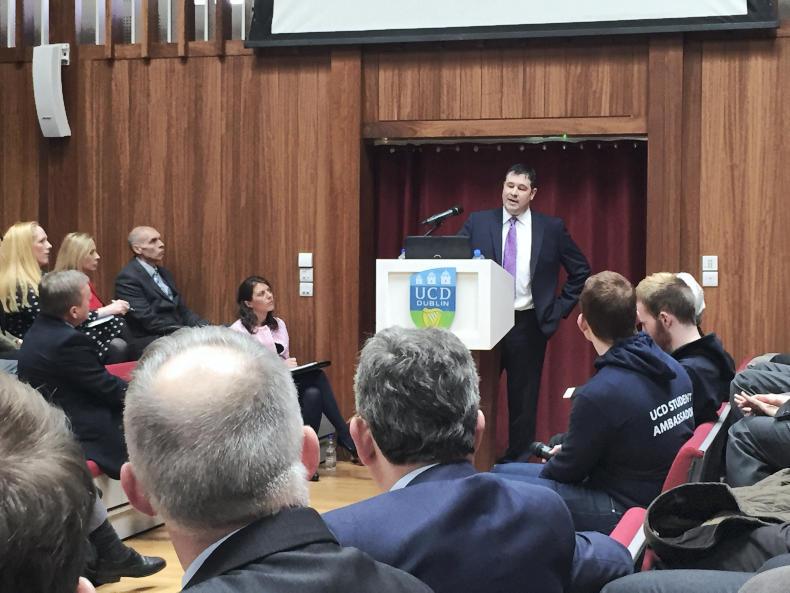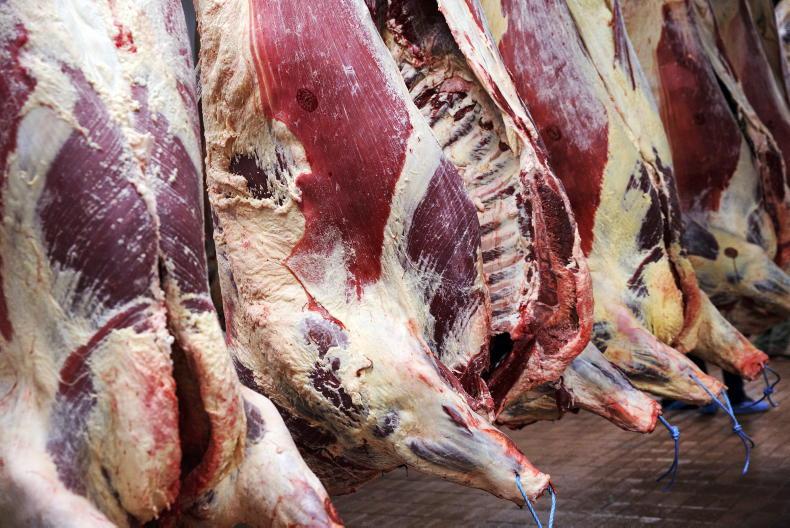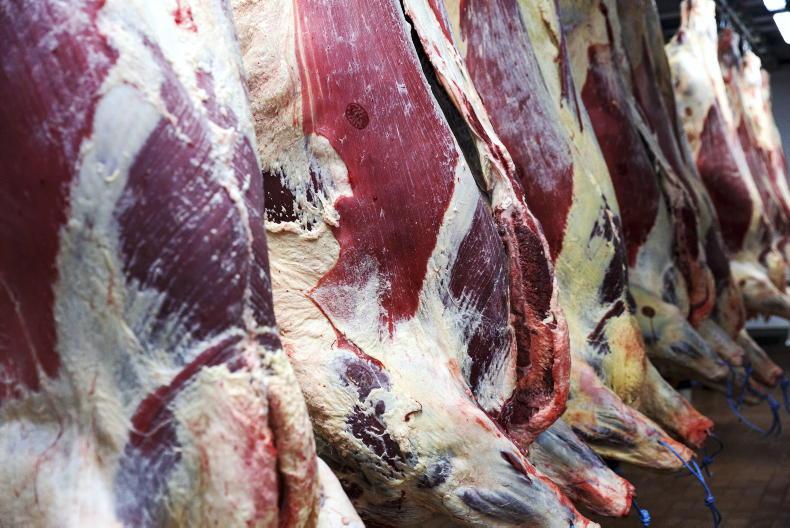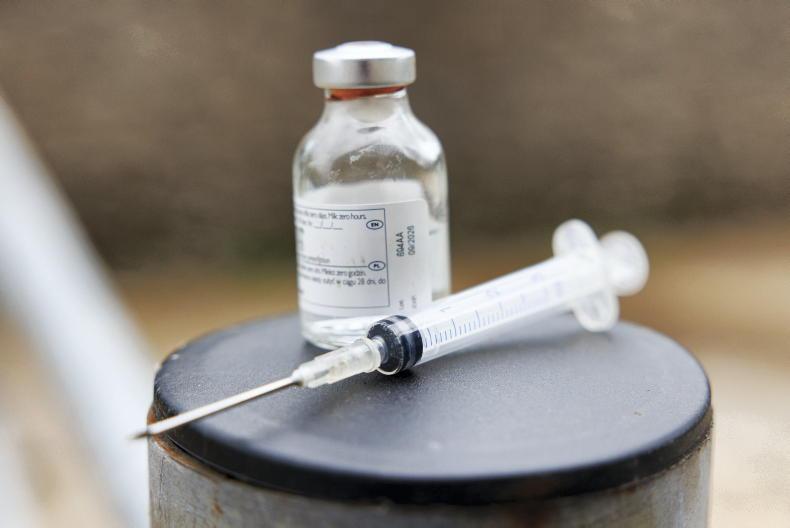British beef prices would drop by 40% and Northern Irish farm incomes will be decimated if the UK opens to cheap imports and cuts farm payments after Brexit, research by Newcastle University has shown. Incoming UCD professor of food and agriculture economics Dr Michael Wallace presented the findings in Dublin on Wednesday.
"A key aspect is how much remains uncertain and unresolved," Dr Wallace told a seminar entitled 'Brexit half way there: implications for agriculture and food'. The lack of clarity on farming and trade rules after Brexit is being felt on the UK land market, he added: "If you're signing a lease in the UK at the moment, you're including a Brexit clause to get out if things turn sour."
Researchers modelling UK farm data found that farm incomes will drop across the UK if it allows imports of cheap food such as South American beef after Brexit.
Hardline supporters of Brexit support this idea, but it would "expose UK agriculture to tremendous competitive forces," Dr Wallace warned.
"This is what Boris Johnson would call going global," he added.
One income indicator modelled by Newcastle University is the proportion of loss-making farms. In Northern Ireland, this would jump from 15% today to 50% under this unilateral free trade scenario and more than 80% if the proposed phasing out of direct payments was confirmed.
"The Treasury absolutely detests direct payments and wants to get rid of them as soon as possible," Dr Wallace warned.
He highlighted the finding that farmers in Northern Ireland and Scotland, where the majority of voters chose to remain in the UK, stand to suffer the largest income losses under several Brexit scenarios.
Protectionism
A WTO tariff scenario would increase UK farm incomes if direct payments remained in place, especially in dairy, as "protectionist" tariffs force British food prices to rise – but Wallace warned that this would cut off Irish farmers from their main market.
Only a UK-EU free-trade agreement would keep farm incomes largely unchanged for all, and Wallace thinks that this is the most likely outcome at this point. He warned that other factors such as exchange rate fluctuations could have an even bigger impact on farm incomes.
Progress
Minister for Agriculture Michael Creed told the seminar that "we may only be perhaps one third of the way", rather than half way as dates would suggest. While he welcomed the recent transition agreement between the UK and EU, he added that much remains to be done to "square the circle" of the UK continuing to argue for both continued free trade with the EU and separate trade deals with other region.
"Full regulatory alignment is our objective in these negotiations, but this is a two way street," Minister Creed said, adding that Ireland's best ally may be UK consumers who will not accept poorer-quality products imported from countries with lower standards.
Read more
Brexit Loan Scheme open to businesses
Transition deal buys time
British beef prices would drop by 40% and Northern Irish farm incomes will be decimated if the UK opens to cheap imports and cuts farm payments after Brexit, research by Newcastle University has shown. Incoming UCD professor of food and agriculture economics Dr Michael Wallace presented the findings in Dublin on Wednesday.
"A key aspect is how much remains uncertain and unresolved," Dr Wallace told a seminar entitled 'Brexit half way there: implications for agriculture and food'. The lack of clarity on farming and trade rules after Brexit is being felt on the UK land market, he added: "If you're signing a lease in the UK at the moment, you're including a Brexit clause to get out if things turn sour."
Researchers modelling UK farm data found that farm incomes will drop across the UK if it allows imports of cheap food such as South American beef after Brexit.
Hardline supporters of Brexit support this idea, but it would "expose UK agriculture to tremendous competitive forces," Dr Wallace warned.
"This is what Boris Johnson would call going global," he added.
One income indicator modelled by Newcastle University is the proportion of loss-making farms. In Northern Ireland, this would jump from 15% today to 50% under this unilateral free trade scenario and more than 80% if the proposed phasing out of direct payments was confirmed.
"The Treasury absolutely detests direct payments and wants to get rid of them as soon as possible," Dr Wallace warned.
He highlighted the finding that farmers in Northern Ireland and Scotland, where the majority of voters chose to remain in the UK, stand to suffer the largest income losses under several Brexit scenarios.
Protectionism
A WTO tariff scenario would increase UK farm incomes if direct payments remained in place, especially in dairy, as "protectionist" tariffs force British food prices to rise – but Wallace warned that this would cut off Irish farmers from their main market.
Only a UK-EU free-trade agreement would keep farm incomes largely unchanged for all, and Wallace thinks that this is the most likely outcome at this point. He warned that other factors such as exchange rate fluctuations could have an even bigger impact on farm incomes.
Progress
Minister for Agriculture Michael Creed told the seminar that "we may only be perhaps one third of the way", rather than half way as dates would suggest. While he welcomed the recent transition agreement between the UK and EU, he added that much remains to be done to "square the circle" of the UK continuing to argue for both continued free trade with the EU and separate trade deals with other region.
"Full regulatory alignment is our objective in these negotiations, but this is a two way street," Minister Creed said, adding that Ireland's best ally may be UK consumers who will not accept poorer-quality products imported from countries with lower standards.
Read more
Brexit Loan Scheme open to businesses
Transition deal buys time










SHARING OPTIONS